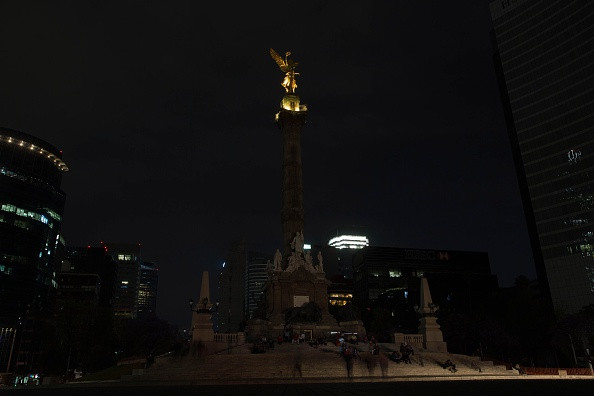Earth Hour 2017: When is it, why do we celebrate and what time should lights be switched off?
The global grassroots initiative celebrates its 10th anniversary this year.
Earth Hour is celebrating its tenth anniversary on Saturday 25th March, at a time when showing a strong commitment to climate has never been more urgent.
Created by wildlife charity WWF in Sydney in 2007, Earth Hour is a global grassroots initiative which takes place annually at the end of March.
For an hour around the world, lights go off as participants turn off all their non-essential electricity, as a sign of their desire to protect their planet and to raise an awareness of climate change.
On Saturday 25 March lights will be switched off between 8.30pm and 9.30pm local time.
The event is always held on a date close to the spring equinox in the Northern hemisphere, and the autumn equinox in the South. This allows for near-simultaneous sunset times in both hemispheres, so the impact of the global "lights out" event is greater and the message more powerful.
In the space of a decade, Earth Hour has really become a worldwide phenomenon with more than 7,000 cities participating and responding WWF's call to "change climate change".
Why was the event created?
Earth Hour is a charitable organisation based in Singapore and an open source movement organised by the World Wildlife Fund (WWF) and volunteer organisations around the world. It was created when WWF Australia partnered with advertising company Leo Burnett and Fairfax Media to organise the first event that would become known as Earth Hour 2007.
The goal was to rally everyone around the issue of climate change, including those who denied its existence. They thought such a dramatic, 'visible' initiative could spark conversations about the potential risks of ignoring global warming and other climate threats.

These objectives resonate particularly today, at a time when climate change denial is gaining a new momentum. In the US, the election of Donald Trump has led to a recent 31% cut to the Environmental Protection Agency's budget.
Two years after the Paris agreement milestone, Earth Hour's organisers hope that the 2017 event will be a success, to make sure climate action is not to be forgotten.
They hope that participants will then "extend the hour" and recognise the importance of making lifestyle changes that will help reduce carbon emissions and save energy and electric power.
How can I participate?
Registering on Earth Hour website and turning off the lights at the designated hour is a first step, a way to let the world know that common individuals and businesses care about tackling environmental challenges.
It also sends a strong message to governments, showing that many communities around the world are aware of the challenges that the planet faces and want them to take action for a more sustainable world.
However, organisers say Earth Hour should not be seen as an end in itself but as the key driver of a larger movement to protect the planet. People can take many initiatives to make their participation count even more.

This year, they can "donate" their Facebook feeds, posting five posts to shine a light on climate action. A big Facebook live event will also take place and organisers are inviting artists to broadcast live sets to their fans around the world during Earth Hour 2017.
Also worth noting that many events will be happening all night long everywhere – to find the nearest to you, you can take a look at the dedicated interactive map.
What precautions should I take?
If you want to turn your lights off, you'll need to take some precautions.
Only non-essential lights and electric power should be turned off. This includes household appliances, overhead lights, or decorative lights. Individuals who participate in the event should make sure they still have an alternative source of light on standby, such as a flashlight to keep safe throughout the hour.
Participating cities will not experience a total blackout, as safety lights in public spaces, lights for aviation guidance, traffic lights, or security lights will remain switched on for the duration of the event.
© Copyright IBTimes 2025. All rights reserved.






















